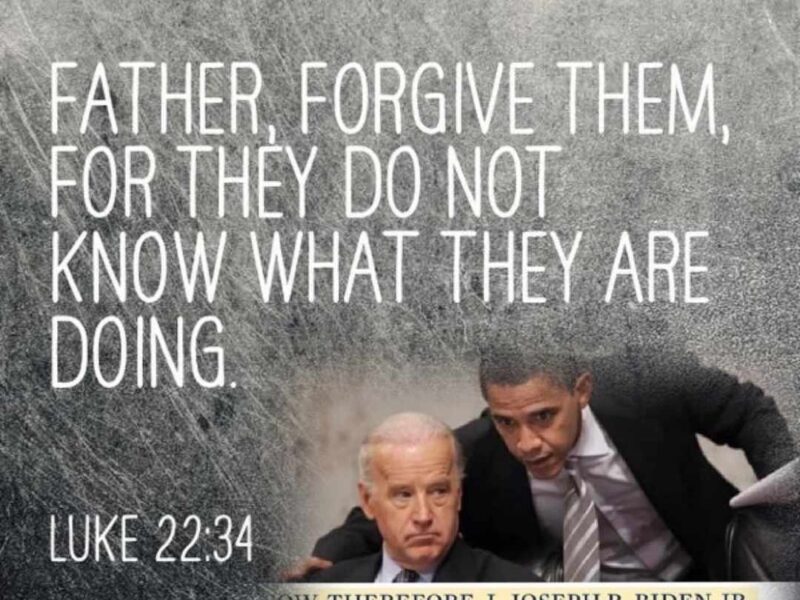The Coming Fall of North Korea?
North Korean Dictator Kim Jong Un has very nearly run out of money. South Korean political figure Kang Seok-ho, of the Liberty Korea Party, cited intelligence that Un’s hard currency reserves will be depleted by October. North Korean dictator Kim Jong Un, whom President Donald Trump has belittled as “Little Rocketman,” inherited his office from his father Kim Jong Il in 2011. Il left behind a war chest of money that apparently Un has depleted. It has been noted over the past few years that even as North Koreans starve, Un has been building a lavish ski resort and conducted expensive nuclear tests and rocket tests.
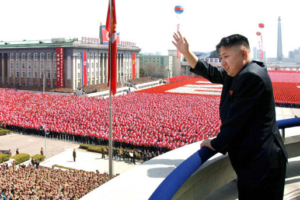
North Korean Dictator Kim Jong Un
George Friedman of Stratfor describes how North Korea makes itself appear unstable and unpredictable, in a word “crazy,” in order to achieve its ends. The threat that the regime could lash out at its adversaries at any moment with devastating effects is how the NorKs have kept western powers at bay. This threat has been N Korea’s bargaining chip in negotiations. In the past, the regime was further protected from reprisal by China and the Soviet Union. The latter no longer exists and the former has recently been cooperating with international sanctions, at least superficially.
President Donald Trump has been eager to isolate North Korea still further since he took office just over a year ago. The President, it seems, is no longer interested in N Korea’s game of petulance. The President announced still more sanctions on the rogue regime during his speech before CPAC. President Trump is not pulling his punches. He has made very clear and evident he intends to take a strong stance against North Korean tyranny and potential aggression.
If North Korea were to attack the immediate effect could be devastating: NorK artillery shells can rain down on South Korea’s capital and most populous city, Seoul. Could these shells contain chemical weapons, biological agents, or even nuclear warheads? This is unknown. Also unknown is the extent of N Korea’s rocket capability. Could weapons of mass destruction be unleashed on US allies including Japan? Could US forces in Guam be in jeopardy? How effective will US missile shield technology be in defending against such an attack? It is more likely that a North Korean attack would be less than impressive and would be met with immediate and deadly retaliation from the South Korea, the United States, and our allies. The possibility of an attack by North Korea and the resulting devastation are the primary bargaining chips held by Kim Jong Un’s regime.
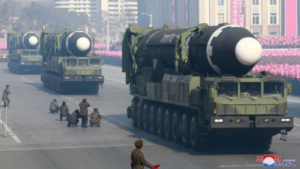
North Korean Rockets on Parade in Pyeongyang
Nevertheless, once the first shot is fired the NorK regime’s fate is sealed. There can be no doubt the regime would quickly collapse under the onslaught of US and allied fire power. China certainly will not come to North Korea’s defense. China needs its exports to the US now more than ever. The Chinese economy is frail and fragile. A war, even one to which China is not a direct party, could bring Chinese markets down. There is also the question of the N Korean Army’s state of readiness. It has been reported that North Korean soldiers have been furloughed in order to find food. Their army is starving. Recent defectors who have managed to make the crossing of the Demilitarized Zone (DMZ) have been found to have parasites and easily treated illnesses. Apparently, medicine and anti-biotics are in short supply in the North. A war could thus look a lot like the first Gulf War of 1991: thousands of soldiers walking across the lines with their hands up in want of a good meal and medicine.
President Trump has made it clear he is calling Un’s bluff. If the prospect of a North Korean first strike is the NorK’s main bargaining chip, President Trump seems to be telling the Un regime to “make his day.” While western commentators somehow interpret this as some form of incitement by the west against North Korea, in fact, a war is much less likely if the US takes a hard line against North Korea. Again, once the first shot is fired by the NorK’s they will have lost the conflict. The regime would do better to try to negotiate some kind of arrangement beneficial to their own interests: staying in power. Western powers have, after all, been willing to appease them in the past. The Un regime may have the misfortune of having to deal with a Trump administration that is not interested in appeasement.
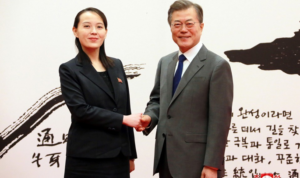
North Korean Director of Propaganda Kim Yo Jong and South Korean
President Moon Jae-in at the Winter Olympics
Kim Jong Un’s sister Kim Yo Jong attended the winter Olympics in PyeongChang where she wooed foreign leaders and charmed the gullible western media. During the proceedings, she reached out to South Korean President Moon Jae-in seeking further talks. His response was that they should create conditions that would make such a visit possible. Generally, talks between North Korea, South Korea, and the United States have been very much on the Un regime’s agenda.
It is not at all likely that North Korea will surrender with a pen, so these negotiations will centre on the threat posed by the NorKs and how the West should appease them. They are eager to find some accommodation that will leave their oppressive regime in power. If the Trump administration stands firm, there is every likelihood the North Korean regime will go bankrupt within the next few years and collapse, just like the Soviet Union did. The regime will become more desperate as it begins to collapse. Un may choose to “die on his feet” and attack, but this would be a pathetic display even now, let alone as the regime begins to disintegrate. In time, the tyrannical regime could just fall apart.
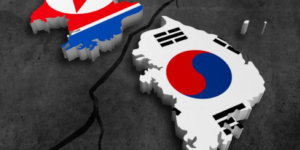
Korean Reunification: Lessons from Germany
On November 9th 1989 crowds gathered impromptu at the Berlin Wall and tore it down. Officially, the East German (DDR) government was not set to relax the travel ban until the following day, and then through a complex visa programme. When the Wall came down, Germany began an expedited process of reunification. The process was a rather hurried one in which the East German Lander (states) petitioned to join the Federal Republic of Germany (West Germany). The process was officially complete within just two years. Some unintended consequences included mass emigration from the former East Germany into the West. This had several negative effects on the West including increased crime and poverty. Wages were depressed as well. Meanwhile, there were few young people to help rebuild the economy of East Germany. Although they remain part of the same country they remain two very different sections. From voting patterns to the economy, eastern Germany is still somewhat separate from western.
What can Korea learn from Germany? In the coming years there is a very real possibility that the North Korean regime will collapse. It may choose to attack the South and precipitate a war. Whatever the case, North Korea may very soon be defunct. The US and South Korea would likely move in with military forces to stabilize the North and restore order. Many Korean families are divided between the countries, and there is a strong urge to reunite. A hasty reunification is, however, not in the best interests of Korea. South Korea should establish a semi-autonomous state in North Korea that, while officially subordinate to the Republic of Korea, would continue be separate. Visits and travel betwixt the countries should certainly be encouraged. Nevertheless, North Koreans should continue to live in North Korea. Access to necessaries: food, clothing, housing, and healthcare must be the priority. There will be no shortage of government aid, emergency funds, and charity to help the North Koreans recover from the evils of their former government. These should be followed by changes to the education system and economic development.
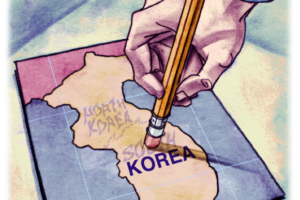
South Korea desperately needs raw materials and unskilled labour. Investment in the former North Korea could begin immediately. From mining to manufacturing North Koreans would be quickly employed in growing a still more vibrant Korean economy. In the global marketplace it is reasonable to assume companies from the United States, Japan, China, and Europe would also want to invest in North Korea. As the people work and gain in prosperity they will gain a greater capacity for self-government. Local governments at the city and provincial level will in a short time be established. Elections for a government in the semi-autonomous former North Korea should be held as soon as practicable after the fall of the North Korean regime and should be held frequently thereafter. In perhaps ten years, a referendum can be held in the north and south to decide upon the question of reunification. An affirmative vote in both regions would lead to a free, united Korea for the first time since 1910 when Japan formally annexed Korea. A free and democratic Korea would be all the greater blessing to the world.
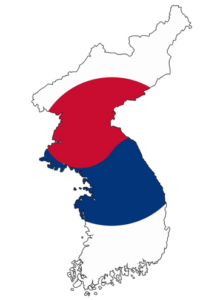
What stands now between today’s reality and this dream of a free, united, and democratic Korea is the resolve of the United States and our allies to stand firm and refuse to appease or capitulate to the oppressive North Korean regime.




